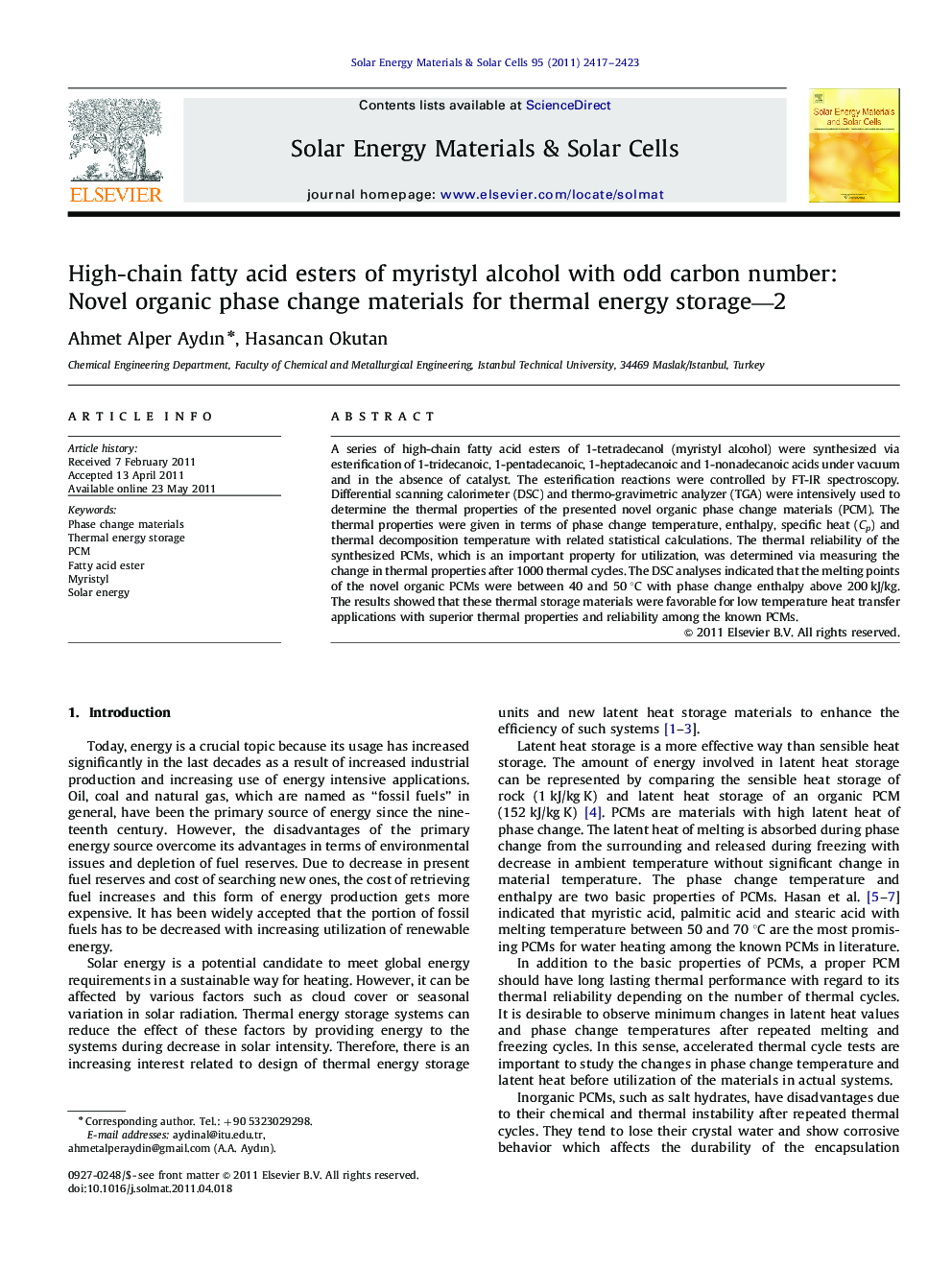| Article ID | Journal | Published Year | Pages | File Type |
|---|---|---|---|---|
| 78799 | Solar Energy Materials and Solar Cells | 2011 | 7 Pages |
A series of high-chain fatty acid esters of 1-tetradecanol (myristyl alcohol) were synthesized via esterification of 1-tridecanoic, 1-pentadecanoic, 1-heptadecanoic and 1-nonadecanoic acids under vacuum and in the absence of catalyst. The esterification reactions were controlled by FT-IR spectroscopy. Differential scanning calorimeter (DSC) and thermo-gravimetric analyzer (TGA) were intensively used to determine the thermal properties of the presented novel organic phase change materials (PCM). The thermal properties were given in terms of phase change temperature, enthalpy, specific heat (Cp) and thermal decomposition temperature with related statistical calculations. The thermal reliability of the synthesized PCMs, which is an important property for utilization, was determined via measuring the change in thermal properties after 1000 thermal cycles. The DSC analyses indicated that the melting points of the novel organic PCMs were between 40 and 50 °C with phase change enthalpy above 200 kJ/kg. The results showed that these thermal storage materials were favorable for low temperature heat transfer applications with superior thermal properties and reliability among the known PCMs.
Graphical AbstractFigure optionsDownload full-size imageDownload as PowerPoint slideHighlights► Novel organic phase change materials (PCMs) for thermal energy storage. ► Thermal properties of high-chain fatty acid esters of myristyl alcohol (1-tetradecanol). ► PCMs with enthalpy above 200 kJ/kg between 40 and 50 °C. ► Single sharp phase changes with superior thermal reliability and stability. ► They are favorable for low temperature heat transfer applications with negligible supercooling.
